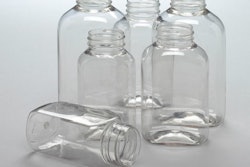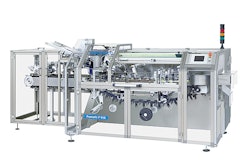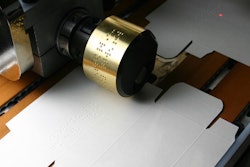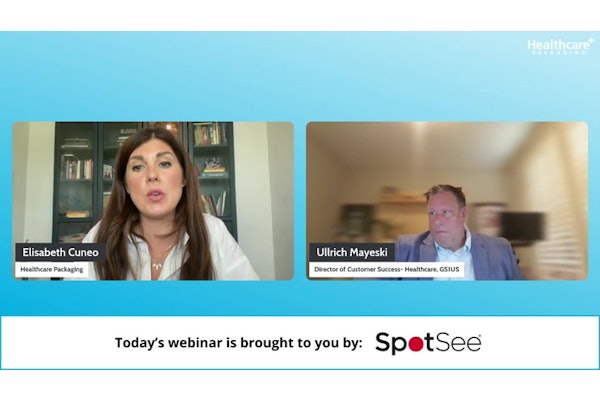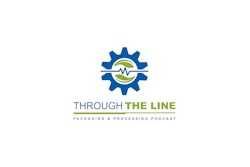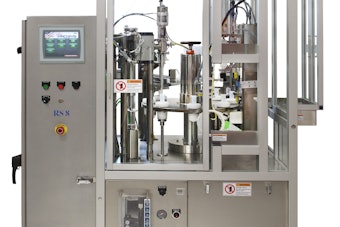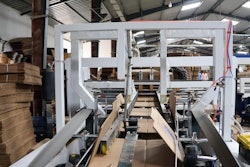
A staple of packaging education at Michigan State University, East Lansing, MI, MSU's Medical Packaging course offers a virtual version as an online alternative to its yearly classroom course on the topic.
“These courses encompass all of the different sectors of healthcare products, pharmaceuticals, medical devices, combination products, and biologics,” explains assistant professor and course instructor Laura Bix, Ph.D., who also took on the virtual class in fall 2008.
The standard in-class course had been taught at MSU long before Bix arrived in 1996 to teach the class. She took over from Dr. Hugh Lockhart, who had taught the course for at least a decade, Bix recalls.
The in-class version is a four-credit course that meets three times weekly for 50 minutes. Additionally, there is a two-hour lab that meets weekly. The full-semester course starts at the end of August and runs into early December. Bix describes the 400-level class—meaning it's intended for senior-level undergraduates—as “a traditional, lecture-style class along with a two-hour weekly lab.”
The virtual course, which runs in parallel with the bricks-and-mortar class, is particularly appealing to healthcare packaging industry professionals, says Bix. “Many in industry have filed New Drug Applications [NDAs] and similar efforts, but maybe they didn't have the background or know the regulatory framework behind the legislation as they'd have liked.”
Bix posts lectures virtually using Macromedia Breeze software. “Breeze allows me to add voiceovers to PowerPoint presentations,” she says. “Online students essentially experience the same lecture that the 'live' students do.”
Student-created projects
Another portion of the course requires students to create informative, educational podcasts on a given topic. According to Bix, the podcast might be on automatic identification and its implementation, or it might be centered on counterfeiting of healthcare products. One exemplary podcast she recalls was created by packaging undergraduate student Derek Koning. Koning's production was a theatrical interpretation of the OneTouch test strips from LifeScan, Inc., a Johnson & Johnson company, that had been counterfeited. “It provided a lot of information about counterfeiting, about the techniques that can be employed to mitigate and identify counterfeiting, yet did so in an entertaining fashion,” Bix reports.
She foresees using such projects as an iterative educational tool. “Ideally, what I'd like to be able to do is use those student-created projects as lessons for the next term of students, and so on—that's really a curriculum firing on all cylinders,” Bix enthuses. For the traditional class, students take on about 16 different projects in a laboratory dedicated to the course.
“Students conduct integrity tests and all kinds of tests that are specific to the healthcare industry,” Bix says. “They learn to use a broad swath of healthcare tests. We've received good support from the industry on those labs. Companies provide many resources, including materials, equipment, and technical expertise regarding content.“
For example, ATC, Inc. donated microflow detection instrumentation used to detect pinholes in device trays, which were provided by Perfecseal, sealed with lidstock from Amcor. These companies not only support the program with donations, but Bix says they also provide ongoing service, training, and technical information.
Bix already sees in this area room for improvement for the virtual students. “The downside of the online course is that the laboratory experiences are lacking,” she says. “I'd like to see the use of virtual types of laboratories for them to get as much of a hands-on experience as possible. The residential or lab students have the advantage of being able to roll up their sleeves and get their hands dirty.”
Regulatory issues, 'hot' cold chain
Bix, who has a keen interest in legislative and regulatory activity, has strengthened that dimension of the class. “We've been following very closely things like the proposed changes in the National Drug Code system,” she says. “We've also been following the mandate from Congress on implementing a track and trace system for medical devices and the Unique Device Identifiers that are required.”
Bix has also hosted guest lectures by Katherine Eban, author of Dangerous Doses, who provided a revealing look at the world of counterfeiting. “Her discussions were entertaining and informative, and she has been very generous with her time,” says Bix. “These are young adults who are relatively inexperienced in the world. This has opened their eyes as a scary, yet fascinating experience.” As a backdrop to the book, Bix notes that they discussed the implementation of the Prescription Drug Marketing Act. Bix strives to make emerging, relevant topics like this a cornerstone of the class.
Such topics include the efforts around carefully controlling the supply chain. “We are increasingly talking about the cold chain and the issues affiliated with it, including the care and protection of biologics in particular because they are sensitive,” Bix says. “The class reads articles of current relevance, like the article from the Journal of the American Medical Association regarding radio frequency, RFID use in hospitals and potential interference with equipment, and the ramifications for technologies like that.”
Another equally timely topic for the class concerns combination products. “I don't think that classes in the past have had to deal with the processing and sterilization complexities that combination products bring to the table,” says Bix. “This also involves added complexity in regulatory oversight.”
Testing process
As likely with many packaging curriculums, acronyms play a major role. “The
students are regularly quizzed on acronyms,” Bix says. “It's very energizing to see them start to speak coherently in this jargon and in the acronyms used in this portion of the packaging world.”
As with just about any class ever taught, there are also tests: A quiz and
a midterm, a second quiz, and then a final exam, according to Bix, for both in-class and virtual students. A deadline “window” for the virtual class to take a quiz can be Monday through Wednesday. Once the student opens the quiz module, they have a predetermined time to complete it.
The online course was reintroduced last fall with 20 students, primarily from industry. “The course seems to have resonated with people,” she says, “especially those in healthcare.”
The online course will be offered in alternate years and will next be available in 2010. “If there is enough demand for the online class, I'm sure that the administration would be pleased to consider having it every year,” suggests Bix.
For further information, visit www.packaging.msu.edu or contact Dr. Laura Bix at 517/355-4556 or via email at [email protected].
-By Rick Lingle, Contributing Editor
“These courses encompass all of the different sectors of healthcare products, pharmaceuticals, medical devices, combination products, and biologics,” explains assistant professor and course instructor Laura Bix, Ph.D., who also took on the virtual class in fall 2008.
The standard in-class course had been taught at MSU long before Bix arrived in 1996 to teach the class. She took over from Dr. Hugh Lockhart, who had taught the course for at least a decade, Bix recalls.
The in-class version is a four-credit course that meets three times weekly for 50 minutes. Additionally, there is a two-hour lab that meets weekly. The full-semester course starts at the end of August and runs into early December. Bix describes the 400-level class—meaning it's intended for senior-level undergraduates—as “a traditional, lecture-style class along with a two-hour weekly lab.”
The virtual course, which runs in parallel with the bricks-and-mortar class, is particularly appealing to healthcare packaging industry professionals, says Bix. “Many in industry have filed New Drug Applications [NDAs] and similar efforts, but maybe they didn't have the background or know the regulatory framework behind the legislation as they'd have liked.”
Bix posts lectures virtually using Macromedia Breeze software. “Breeze allows me to add voiceovers to PowerPoint presentations,” she says. “Online students essentially experience the same lecture that the 'live' students do.”
Student-created projects
Another portion of the course requires students to create informative, educational podcasts on a given topic. According to Bix, the podcast might be on automatic identification and its implementation, or it might be centered on counterfeiting of healthcare products. One exemplary podcast she recalls was created by packaging undergraduate student Derek Koning. Koning's production was a theatrical interpretation of the OneTouch test strips from LifeScan, Inc., a Johnson & Johnson company, that had been counterfeited. “It provided a lot of information about counterfeiting, about the techniques that can be employed to mitigate and identify counterfeiting, yet did so in an entertaining fashion,” Bix reports.
She foresees using such projects as an iterative educational tool. “Ideally, what I'd like to be able to do is use those student-created projects as lessons for the next term of students, and so on—that's really a curriculum firing on all cylinders,” Bix enthuses. For the traditional class, students take on about 16 different projects in a laboratory dedicated to the course.
“Students conduct integrity tests and all kinds of tests that are specific to the healthcare industry,” Bix says. “They learn to use a broad swath of healthcare tests. We've received good support from the industry on those labs. Companies provide many resources, including materials, equipment, and technical expertise regarding content.“
For example, ATC, Inc. donated microflow detection instrumentation used to detect pinholes in device trays, which were provided by Perfecseal, sealed with lidstock from Amcor. These companies not only support the program with donations, but Bix says they also provide ongoing service, training, and technical information.
Bix already sees in this area room for improvement for the virtual students. “The downside of the online course is that the laboratory experiences are lacking,” she says. “I'd like to see the use of virtual types of laboratories for them to get as much of a hands-on experience as possible. The residential or lab students have the advantage of being able to roll up their sleeves and get their hands dirty.”
Regulatory issues, 'hot' cold chain
Bix, who has a keen interest in legislative and regulatory activity, has strengthened that dimension of the class. “We've been following very closely things like the proposed changes in the National Drug Code system,” she says. “We've also been following the mandate from Congress on implementing a track and trace system for medical devices and the Unique Device Identifiers that are required.”
Bix has also hosted guest lectures by Katherine Eban, author of Dangerous Doses, who provided a revealing look at the world of counterfeiting. “Her discussions were entertaining and informative, and she has been very generous with her time,” says Bix. “These are young adults who are relatively inexperienced in the world. This has opened their eyes as a scary, yet fascinating experience.” As a backdrop to the book, Bix notes that they discussed the implementation of the Prescription Drug Marketing Act. Bix strives to make emerging, relevant topics like this a cornerstone of the class.
Such topics include the efforts around carefully controlling the supply chain. “We are increasingly talking about the cold chain and the issues affiliated with it, including the care and protection of biologics in particular because they are sensitive,” Bix says. “The class reads articles of current relevance, like the article from the Journal of the American Medical Association regarding radio frequency, RFID use in hospitals and potential interference with equipment, and the ramifications for technologies like that.”
Another equally timely topic for the class concerns combination products. “I don't think that classes in the past have had to deal with the processing and sterilization complexities that combination products bring to the table,” says Bix. “This also involves added complexity in regulatory oversight.”
Testing process
As likely with many packaging curriculums, acronyms play a major role. “The
students are regularly quizzed on acronyms,” Bix says. “It's very energizing to see them start to speak coherently in this jargon and in the acronyms used in this portion of the packaging world.”
As with just about any class ever taught, there are also tests: A quiz and
a midterm, a second quiz, and then a final exam, according to Bix, for both in-class and virtual students. A deadline “window” for the virtual class to take a quiz can be Monday through Wednesday. Once the student opens the quiz module, they have a predetermined time to complete it.
The online course was reintroduced last fall with 20 students, primarily from industry. “The course seems to have resonated with people,” she says, “especially those in healthcare.”
The online course will be offered in alternate years and will next be available in 2010. “If there is enough demand for the online class, I'm sure that the administration would be pleased to consider having it every year,” suggests Bix.
For further information, visit www.packaging.msu.edu or contact Dr. Laura Bix at 517/355-4556 or via email at [email protected].
-By Rick Lingle, Contributing Editor



